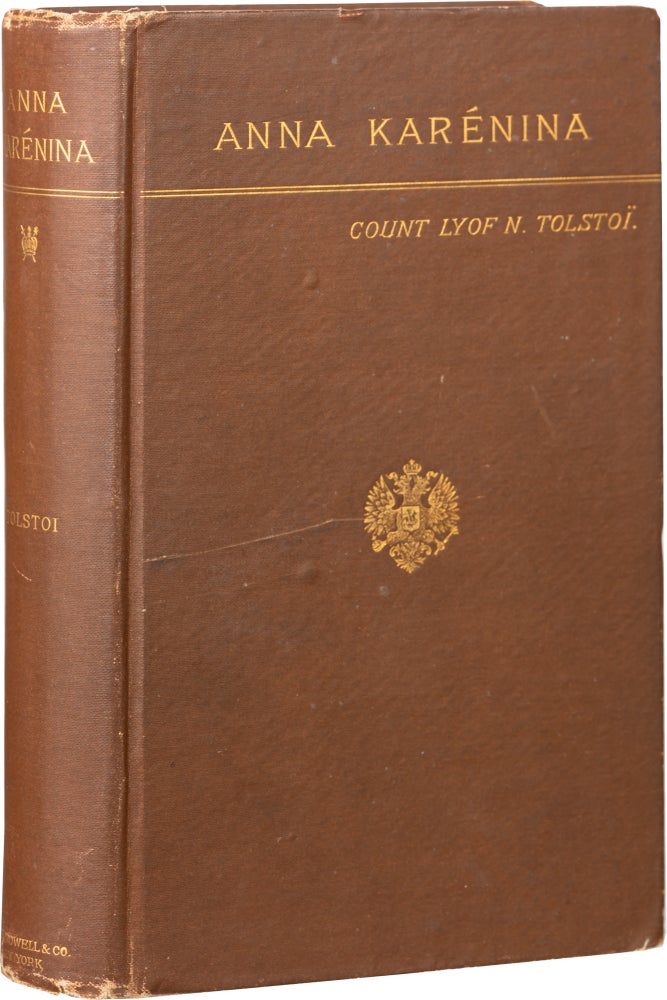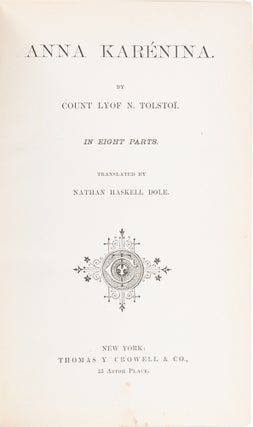Anna Karenina
New York: Crowell, 1886. First Edition. Hardcover. 1st edition in English, preceding the London edition. 1st printing with Crowell’s signet on the title page and the page opposite blank, and if the signet is missing it’s a reprint, and when wrongly called a later state, or later issue, or ignored, it’s deceit, and though such self–defeating tactics are so prevalent in bookselling that they can’t be outlawed, they should be outgrown. Are there sellers who do it right? There are. And their essential and exceptional maturity differentiates them from the others. 5 pages of ads at end (4 is ok too if no Russian translations are listed), Rand Avery imprint (Ward Avery also seen and that is puzzling). Original cloth, bookplate, spine tips worn, else very good. A common 1st edition, scarcer when it’s correct but customarily overvalued. Very good. Item #496
fter writing War and Peace, Tolstoy realized that every facet of war could be found in any respectable domestic relationship, so he took 5 years to write Anna, a serious bid to construct a perfect novel. His themes integrated hypocrisy, society, jealousy, fidelity, family, faith, progress, passion, and the agrarian connection to the land contrasted against city life. His dual plotline paired the, at first, contented but ultimately tragic story of Anna and Alexei with the, at first, tenuous but ultimately fulfilling marriage of Kitty and Konstantin, the key figure in each being the young officer Vronsky. Tolstoy only said of Anna that she was beautiful and could see in the dark like a cat, leaving her image for the reader’s eye, and he carefully crafted his technique to suit the characters and events. Each scene has its distinctive cadence, syntax and imagery, and the style, content, and structure are polished and refined into an utterly symmetrical pair of relationships, places, and events. He announced his premise and predicted this symmetry in the opening sentence, saying, “All happy families resemble one another, every unhappy family is unhappy after its own fashion.” Kitty and Konstantin find meaning, not because their life is without sorrow but because they sacrifice for each other, pardon each other, and desire each other’s happiness. Anna’s story is one of fatal attraction. For what appears to be love, but on a deeper level is ego, Anna and Vronsky renounce family, reputation, health, and finally life. Her last chance at recovery passes when her husband won’t risk the consequences of a divorce on his career and threatens her with the loss of her son, a separation she refuses to consider. Today she’d just insist on a divorce, at any price, forsaking everything, because children grow up, and shape their bond with each parent for themselves, time passes, and all but the most bruised move on. And speaking of moving on, I’ve now been divorced so long, I’m starting to forget what’s wrong with me.
Price:
$500.00


